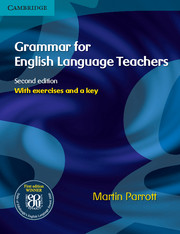6 - Comparatives and superlatives
Published online by Cambridge University Press: 09 February 2023
Summary
Key considerations
The grammar involved in expressing comparative and superlative meaning is more complex in English than in many languages. Not all languages make a distinction between comparatives and superlatives, and some learners may find the distinction an awkward one to grasp.
Learners usually like teachers to introduce this topic bit by bit, e.g. by initially teaching comparative forms and superlative forms separately, teaching the use of more. separately from …er, and most separately from …est.
Coursebooks tend to teach very idealised comparative and superlative structures, to provide learners with a useful set of ‘rules’. In fact, comparatives and superlatives occur only rarely in these idealised patterns. In time learners will also need to recognise the large variety of forms which occur, and to use some of the variations.
What are comparatives and superlatives?
At the simplest level:
• comparatives are adjectives and adverbs that end in e. (e.g. bigger, richer, faster).
• superlatives are adjectives and adverbs that end in es. (e.g. biggest, richest, fastest).
Learners need to learn not only when these forms should be used but also when they can’t be used (and what to use instead). Consequently, in this chapter we also consider:
• more or less followed by nouns, adjectives and adverbs (e.g. more time, more successful, less attentively).
• most. or least. followed by nouns, adjectives and adverbs (e.g. most time, most successful, least attentively).
How are they formed?
Long adjectives and adverbs
We use more and most before adjectives and adverbs when these words are long – almost always if they have three or more syllables (e.g. ex/pen/sive = 3 syllables; con/fi/dent/ly = 4 syllables).
expensive: It was the most expensive wine in the shop.
energetically: She talks more energetically when she’s with people she knows.
Short adjectives and adverbs
We generally teach that we add er or est to the end of shorter adjectives and adverbs – almost always if they have only one syllable (e.g. fast = 1 syllable).
fast: He drove faster this morning.
- Type
- Chapter
- Information
- Grammar for English Language Teachers , pp. 79 - 93Publisher: Cambridge University PressPrint publication year: 2010



